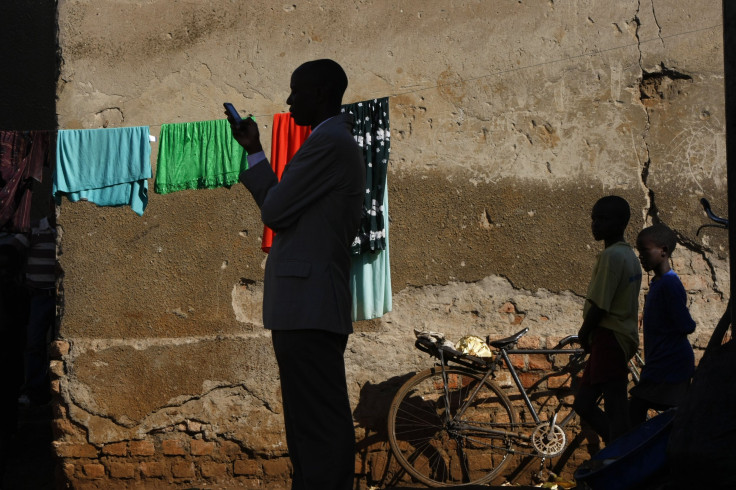Money For Nothing: Uganda Proposes Tax On Mobile Money Transfers, Asking Citizens To Pay Up After Foreign Donors Pull Back

Uganda has unveiled plans to tax cash transfers sent via mobile phone, a move that is expected to have a significant impact on the country’s poor and middle class citizens. The new levy is an attempt to increase domestic sources of revenue to make up for a loss in international aid, which was downsized due to corruption concerns.
Mobile money is a concept unfamiliar to many Westerners, but it has become an immensely popular system in many developing countries -- especially in Africa, where mobile phone usage has skyrocketed over the past decade. Bloomberg reports that across the continent, more than 55 million people are using mobile money; the market was worth at least $61 million last year. It serves as an alternative to traditional banking, allowing users to store and send money via their mobile phones instead of a traditional bank account. Funds are associated with SIM cards, and users can instantly exchange money with others, or redeem their mobile funds for cash at designated outlets.
Uganda, a landlocked country of 35 million, has seen an explosion in the number of people using mobile money; the figure tripled from 2.9 million in 2011 to nearly 9 million by the end of 2012, according to The East African, a Kenyan newspaper.
Ugandan consumers pay a fee for each mobile money transaction, but they were not subject to government taxation -- until now. Finance Minister Maria Kiwanuka said that a 10 percent levy on money transfer operators is expected to raise $12 million annually, and would help the government make up for the small-scale tax evasion practiced by many Ugandans.
“All the tax proposals that have been mentioned add up to about 3 percent of existing taxes, and they're still subject to parliamentary approval,” Kiwanuka said to the BBC. “That percentage shows you that really the budget is not about new taxes, it's about … taxes already due be paid. Collecting the uncollected.”
The news is unlikely to go over well with the country’s poor and middle-class citizens, many of whom do not have bank accounts and rely on mobile money transfers to receive remittances from abroad, exchange money with friends and family or pay bills.
The new tax is especially controversial because it diverts funds to a government that has been accused of endemic corruption. An October report from Uganda’s auditor-general revealed that more than $13 million in aid had been diverted to unauthorized accounts linked to the office of Prime Minister Amama Mbabazi. The money was meant to fund reconstruction and resettlement of Uganda’s northern region, which suffered severe damage during the insurgency of the Lord’s Resistance Army, or LRA. The conflict killed tens of thousands of civilians from the late 1980s until 2006, when the LRA dispersed into surrounding countries.
In response to the corruption report, Western donors including the U.K., Ireland, Germany, Norway and Denmark suspended aid to Uganda, where nearly one-fourth of the population lives in poverty. The government, which had relied on assistance for about 25 percent of its budget, responded by paying back some of the aid money and intensifying efforts to cut down on graft.
Ugandan officials, now facing a $1.4 billion budget deficit, are attempting to raise revenue at home to lessen the country’s dependence on foreign aid, and the mobile money tax is a part of those efforts. The government is also increasing taxes on international phone calls, financial services and fuel. But some citizens are less than pleased that they are being asked to help bear the burden.
“It's very unfortunate that Ugandans are being squeezed both ways," Simon Mpagi, a mobile phone-based money transfer agent, said to Reuters. “They steal our taxes and donor money ... leaving public services [in] near-collapse and now when donors get angry and cut them off, then they come to us and punish us again by raising taxes to grab even the little income we struggle to make.”
© Copyright IBTimes 2025. All rights reserved.






















